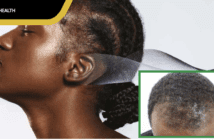Prevalence of disease is 67.5%
World Health Organization (WHO) says one positive outcome of the COVID-19 crisis was that more families started cooking at home regularly. This meant that they could guarantee hygiene and food safety.
They observed that as COVID restrictions limited people to their homes, an estimated 30% of families began having homemade meals, which gave them more control over what they ate and what they put into their food, leading to healthier lifestyles.
Besides limiting COVID-19 infections, people were protected from acquiring contagious diseases, including H. pylori, which affects nearly 70 per cent of Kenyans of all age groups.
I sought to learn more about H. pylori from Dr. Serah Wafula, who doubles up as a General Practitioner (MNChB) and Public Health Specialist (MPH).
When I found out that Dr.Wafula has been treating Kenyans for diverse ailments for a long time, I felt she could share some useful information with us. I started by asking her what ailments are more prevalent in Kenya. She said Malaria is one of them, but infectious diseases are more prevalent; Pneumonia, Typhoid, and H. pylori are common. In addition, non-communicable diseases like cancer, diabetes and hypertension are on the rise.
Dr.Wafula explains that Helicobacter Pylori, commonly known as H. pylori, affects a number of people around us. It is a disease we must guard against and protect ourselves from at all costs. She discloses that in Kenya, the prevalence of H. pylori infection is about 67.5% in all age groups.
Below are some answers from Dr.Wafula
Do many Kenyans suffer from Helicobacter Pylori (H. Pylori)
What is H. pylori infection?
Helicobacter pylori infection is a bacterial infection caused by the Helicobacter pylori pathogen. This pathogen is a small, curved, microaerophilic, gram-negative, rod-shaped bacterium which colonizes the mucus layer and epithelial mucus of the stomach in approximately 50% of humans worldwide.
Once colonized by this pathogen, the human host can remain infected for life unless intensive antimicrobial therapy is administered. This disease is the principal cause of chronic active gastritis, stomach and peptic ulceration and gastric cancers.
What are the risk factors?
Infection risk is higher if one lives with someone with the H. pylori infection. It can be brought about by contamination, especially if the person preparing the food does not wash their hands properly. Family history is another factor, especially if there is an immediate relative with a history of gastric cancer.
The risk of H. pylori infection is increasing in developing countries where people live in crowded and unsanitary conditions without reliable hot water supply, thereby increasing the risk of H. pylori infection. People living in geographic areas with high rates of gastric cancer are vulnerable as well.
What are the symptoms?
Common symptoms are the ones linked to the gastrointestinal system. They include:-
- A burning sensation that is worse in the upper abdomen
- Pain in the stomach that is worse when it is empty
- Nausea and sometimes vomiting
- Appetite loss
- Frequency of burping
- Bloating
- Weight loss
Tell us about the Complications
Impediments associated with H. pylori infection include:
- Ulcers occur due to damage to the protective inner lining of the stomach and small intestine. Because of this, the stomach acid produced creates an open sore/ulcer.
- Gastritis is an inflammation of the stomach lining caused by irritation and swelling of the lining due to H. pylori infection.
- The carcinogenic effect of the H. pylori bacteria causes stomach cancer. This can be fatal.
How is it diagnosed?
H. pylori infection is mainly diagnosed by doing an H. pylori stool antigen laboratory test to isolate the disease-causing pathogen.
If the patient has chronic complications, it can be diagnosed by performing an endoscopic procedure to isolate the pathogen.
How is it treated?
H. pylori infection involves a combination of antibiotics, proton pump inhibitors (PPIs), and antacids. The first line of treatment entails using antibiotics like Clarithromycin, Metronidazole, and Amoxicillin and PPIs like Esomeprazole.
How can it be prevented?
Hands should be washed with soap and water, especially after using the bathroom and before eating. Food should be cleaned and cooked safely, and drinking water should be clean to avoid contamination.
Are Kenyans taking their health seriously?
Most are because they have taken health insurance to support their treatment when they fall sick. For low-income earners, however, more support may be needed to help them manage the financial aspects surrounding their healthcare. However, most ailments are manageable as long as systems are running well.
Does Kenya have enough equipment for diagnosis and treatment?
Many places in urban areas have sufficient equipment. Still, there is a need for improvement in rural areas, especially for significant equipment like MRI machines that may be needed for better diagnosis.
HOME TREATMENT GAINING CURRENCY IN KENYA
When COVID-19 struck, it became clear to several people around the world that working from home was a good alternative, especially because it gave them flexible hours, more work time, eased communication (thanks to modern technology), enabled them to cut costs and kept them healthy.
When employees were eventually asked to return to their offices, many still preferred to work remotely and go to their workplaces on a need-to basis. Some abandoned working from the office altogether.
Studies have shown that doctor home visits result in patient satisfaction because they get treated in the comfort of their homes. No wonder more and more people are calling on doctors to offer it. The reasons are varied.
Some cannot afford daily hospital rates, there are those who prefer to heal at home and there are those who want regular and personalized care.
Besides, some patients are too weak to travel or too depressed to go to the hospital, and then others just want to be taken care of by their loved ones. You also get to steer clear of nosocomial diseases – (Acquired in a hospital, especially in reference to an infection). Doctors I spoke to told me they are astonished by the number of patients seeking home care lately. Numbers started increasing at the onset of corona and have steadily grown.
Dr. Wafula divulges what she feels about home visits- “More than anything, treating someone, and seeing them get stronger and better by the day or just giving people hope and improving the quality of their lives, is so gratifying. I cannot find the right words to communicate it.”
Her position entails Concierge medicine, so she visits and manages patients at home. These patients range from babies to the elderly, and treatment is done in liaison with consultants in various fields of medicine. When a patient calls a medic, the doctor determines the symptoms and the location and proceeds to the patient’s home with the right equipment and medication. The physical examination then guides the doctor on what to do next.
The elderly seek home visits because many find it challenging to go to a health facility due to extreme malaise. Several parents also call for home treatment for their children. It saves the patient the time and effort needed to get to a health facility, which is a bonus. Additionally, one avoids nosocomial diseases. Doctors like home visits because they can offer patients optimum care; they have the time to examine and tend to them.
What kinds of patients need this treatment most?
Concierge medicine is needed, especially by the elderly, weak and bed-ridden patients, to give them efficient care. But anyone can seek it.
Health Tips
The Kiwi fruit
- Kiwi fruit is one of the best fruits you can have. According to medicalnewstoday, it can give you a beautiful skin, make you sleep better, and prevent constipation and cancer. It also has anti-inflammatory effects and is suitable during pregnancy. It cares for your heart and blood pressure and contains the dreaded kidney stone.
- Take good care of yourself – have an insurance policy if possible, go for regular check-ups, eat right, include fruits and vegetables in your diet, exercise, get enough sleep, avoid stress, find time to relax and be at peace with yourself. Do not hesitate to see your doctor when you notice anything unusual
As usual, always remember to consult your doctor for more intense treatment.
The interviewer is the editorial consultant of the Accountant Journal. Email: [email protected]




